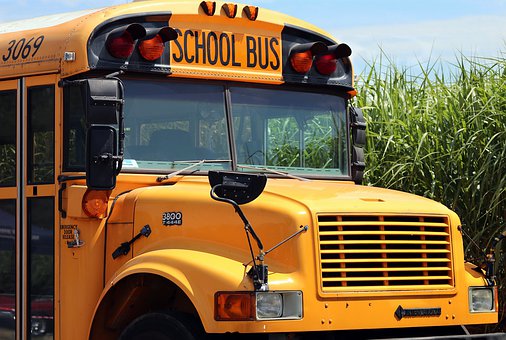Support for Data-Driven Instruction Comes Up Short in New Study
Although most school districts help teachers use data to improve student learning, a new Mathematica study shows that providing schools with data coaches and professional development to support their efforts did not result in increased data use by teachers. It also did not change their instructional practices or affect student achievement. Data-driven instruction (DDI) has been widely viewed as a promising approach to school reform, but until now little has been known about its effectiveness. This study looked at a program of support for school leaders and teachers on how to analyze data to select and put into place strategies for improving their instruction. ( Source: Mathematica )
As Suburban Chicago Schools Become More Diverse, Boards Are Slow to Change
The schools around Lansing have been shifting over the years from mostly white to mostly black with a growing Hispanic population. But the school board hasn’t been changing with it. Black was the first person of color to be elected to that school board in 2011, making it six white members and one black member. The district includes four communities — Burnham, Calumet City, Lansing and Lynwood. But all members at the time of this meeting were from Lansing. Like public schools across the country, many districts in the Chicago suburbs are becoming more diverse, but that change isn’t necessarily reflected on local school boards.
Rockford Public Schools Thanks Pathway Sponsors for Paving the Way
ROCKFORD — When Mikayla Perez was a freshmen she thought she wanted to be a lawyer. Today, after four years of attending the college and career academies of Jefferson High School, Perez is planning a college major in international business. It suits her, the 17-year-old explained, and she learned this through her participation in her school’s business academy. “A lot of the academies kind of really show students what careers are really out there and what the detail is and what you’re actually getting into,” Perez said. “A lot of students don’t really know.”
Illinois State Board of Education Schedules Budget Hearings in Four Cities
SPRINGFIELD — The Illinois State Board of Education has scheduled four hearings in different parts of the state to gather input in the coming weeks for its budget request that will be sent to the governor and General Assembly in January. In a news release announcing the hearings, Illinois Education Superintendent Carmen Ayala touted the state’s evidence-based funding formula, which was passed in August 2017. “Illinois has made historic investments in Evidence-Based Funding and early childhood education that have transformed entire communities,” Ayala said in a statement. “The voices of educators and community partners must be front and center as we advocate for the adequate and equitable resources our students need to continue to grow.”
Even as New Polls Show Both Teachers and Parents Demanding Better Data About Their Students, Only 17% of Educators Say They’ve Received Data Training in Prep Programs
Even as information about schools proliferates across the internet, a new set of polls shows that parents and teachers want more meaningful student data, capturing children’s relationships with education that go beyond just their grades or even time in school. Half of parents strongly agree and 43 percent somewhat agree that they support teachers’ using student data like grades, attendance and test scores to ensure that their children are receiving “the enrichment they need,” one of the polls said. More than two-thirds of parents strongly (29 percent) or somewhat (41 percent) agree that schools should share student information securely with other youth organizations that offer services to their kids, such as the Boys and Girls Clubs and tutoring services.
When Is a School Segregated? Making Sense of Segregation 65 Years after Brown v. Board of Education
Many students are enrolled in segregated school systems with unequal access to resources. In this report, we present a measure that can help policymakers identify the schools in their system that are contributing the most to segregation. Much research on segregation relies on an absolute measure of segregation, which evaluates exposure and isolation between students of different racial groups within individual schools. But these measures can be misleading because they are strongly influenced by the racial composition of students in the neighborhood or system. (Source: Urban Institute)
Rising Tide: Charter School Market Share and Student Achievement
Plenty of studies have compared the progress of students in charter schools versus traditional public schools. And more than a dozen have examined the “competitive effects” of charters on neighboring district schools. Yet, to our knowledge, no prior study has directly addressed the trillion-dollar question—that is, whether overall achievement increases as the “market share” of charter schools grows. Rising Tide: Charter School Market Share and Student Achievement, authored by Fordham’s David Griffith, is a first-of-its-kind study that looks at the relationship between “charter market share” and the academic achievement of all students in a given community, including those in traditional public schools. (Source: Thomas B. Fordham Institute)
School Safety Database Would Help Educators Scour Technology Options
To strengthen school safety for K-12 students across the country, lawmakers proposed a bill last week to establish a national database as a resource for districts to assess, identify, and share information on school security technology and innovation. While the safety of students has become a top priority for many schools, there is no general approach to help educators sift through the multitude of safety technologies or share best practices for designing a secure school environment, according to lawmakers.

